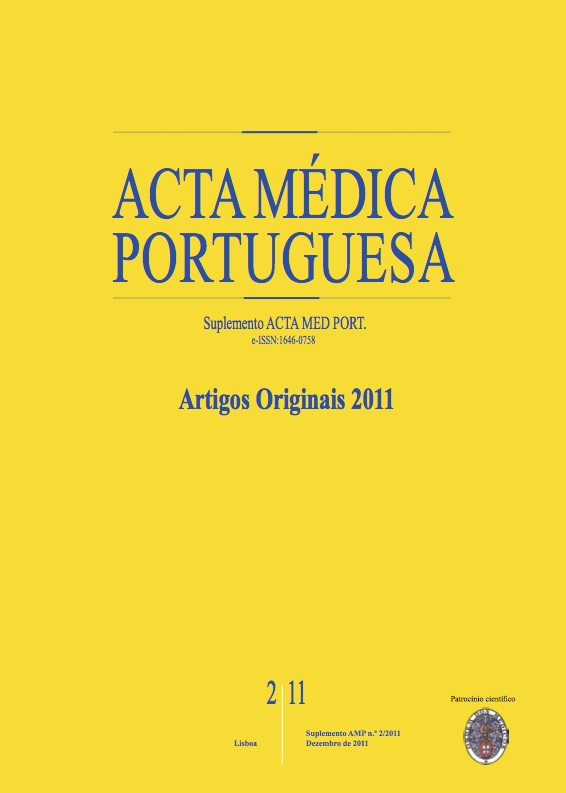Motor coordination in premature and/or low birth weight children.
DOI:
https://doi.org/10.20344/amp.1518Abstract
Our evaluation pretends to evaluate the influence of prematurity / very low birthweight in motor coordination, in a group of premature children without clinical evidence of neurological injury.We assessed 58 ex-premature children born between 1997 and 2000 in Central's Portugal Region, of which 31 participated in the study. The whole-body coordination test was performed to assess motor performance.Our sample was composed of 31 children, 14 males and 17 females, divided into two age groups: from 7 to 8 years and 9 to 10 years. The mean gestational age was 30 and 30.1 weeks respectively for the age groups from 7 to 8 years and 9 to 10 years. The birthweight was, on average, 1059 and 1169 g respectively for the group of 7 to 8 years and 9 to 10 years. Based on the results of motor quotient we found 71% (22) of children with reduced motor ability, 23% (7) with impaired motor skills, and only 6% (2), with normal motor coordination.From our study there was no evidence that premature and low birthweight children, have worse motor coordination, that female children have better coordination than the male, and there was not evidence also that children practicing physical activity have better coordination.Downloads
Downloads
How to Cite
Issue
Section
License
All the articles published in the AMP are open access and comply with the requirements of funding agencies or academic institutions. The AMP is governed by the terms of the Creative Commons ‘Attribution – Non-Commercial Use - (CC-BY-NC)’ license, regarding the use by third parties.
It is the author’s responsibility to obtain approval for the reproduction of figures, tables, etc. from other publications.
Upon acceptance of an article for publication, the authors will be asked to complete the ICMJE “Copyright Liability and Copyright Sharing Statement “(http://www.actamedicaportuguesa.com/info/AMP-NormasPublicacao.pdf) and the “Declaration of Potential Conflicts of Interest” (http:// www.icmje.org/conflicts-of-interest). An e-mail will be sent to the corresponding author to acknowledge receipt of the manuscript.
After publication, the authors are authorised to make their articles available in repositories of their institutions of origin, as long as they always mention where they were published and according to the Creative Commons license.









